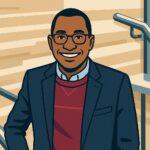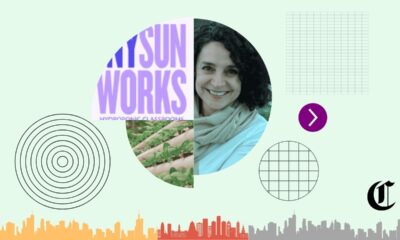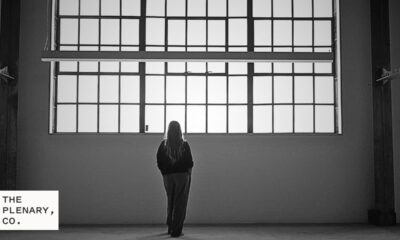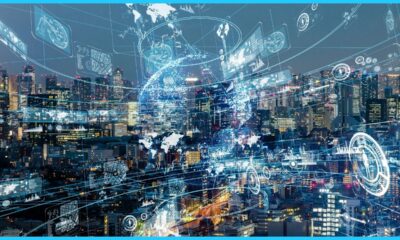Questions of the Day Program
Inside Genspace: Exploring the theory of change behind the world’s 1st community biology lab
CivicSciTV’s Questions of the Day Host Fanuel Muindi sits down to talk with staff members Casey Lardner and Vanessa Champagne from Genspace, the world’s first community biology lab located in the heart of Brooklyn, New York. Fanuel asks a range of questions covering the theory of change, the meaning of impact, partnerships, challenges, members, and so much more. Vanessa and Casey share insights on the evolution of the lab, the impact of their work on local communities, and the challenges and successes of operating a community-based scientific environment. They delve into the various community projects including their Break into Biotech program that they recently launched with support from the New York City Economic Development Corporation.https://www.genspace.org/
Key Insights
1. Community Engagement and Education: One of the foundational aspects of Genspace’s operation is its emphasis on community engagement and education. The lab is not just a place for conducting experiments; it serves as a learning hub for people from diverse backgrounds including artists, tech enthusiasts, and entrepreneurs. This model fosters a unique interdisciplinary approach to science, making it accessible and engaging to a broader audience. This has been successful in demystifying science and making it part of the community’s daily dialogue.
2. Hands-On Science: Genspace offers hands-on experience in various scientific fields such as biohacking, genetic engineering, and biomaterials. This practical approach is crucial in a field where traditional educational institutions often rely heavily on theoretical knowledge. By enabling community members to engage in real-world scientific activities, Genspace not only enhances their understanding but also stimulates innovation and creativity in scientific endeavors.
3. Challenges: Operating a community lab comes with its own set of challenges. Funding remains a significant hurdle, as the operation of such a lab is costly, and finding financial support for adult education and innovative projects is often more challenging than for youth programs. Additionally, balancing the educational needs of a diverse group of participants requires constant adaptation and development of new teaching strategies that minimize jargon and maximize engagement.
4. Impact Measurement and Theory of Change: The impact of Genspace is measured not just by the scientific outcomes but also by the personal growth and development of its members. The lab has seen individuals with no prior scientific background becoming proficient and even changing their career trajectories. This aspect highlights Genspace’s role in shaping science identities where individuals see themselves as capable of contributing to science regardless of their original field of study or profession.
5. Future Aspirations and Expansion: There is a clear vision for the future expansion of Genspace to make its offerings more accessible to a wider audience. The idea of replicating the Genspace model in other boroughs or regions reflects a strategic goal to decentralize and democratize access to scientific education and community collaboration.
Conclusion
The conversation with Genspace representatives underscores a transformative approach to community science education. By lowering barriers to entry, fostering a collaborative environment, and emphasizing hands-on learning, Genspace is not just educating but also empowering citizens to engage with science in meaningful ways. This model serves as a blueprint for future initiatives aiming to integrate science into community settings globally.
Follow Up Questions
- (1) How does Genspace prioritize its resources among various projects and educational programs? What criteria are used to determine the allocation of limited resources?
- (2) How does Genspace assess the educational outcomes of its programs? Are there specific metrics or feedback mechanisms in place to measure the effectiveness of your teaching methods?
- (3) What has been the most surprising feedback from the community regarding their experience at Genspace? Can you share examples of how specific feedback influenced your operational or educational strategies?
- (4) What are the biggest challenges (beyond funding) for community science labs like Genspace in the near future?
- —
This conversation was made possible by support from the New York City Economic Development Corporation (NYCEDC). Visit Https://edc.nyc to learn more. Fanuel Muindi is a Professor of Practice in Civic Science at Northeastern University in the College of Arts, Media, and Design.
Fanuel Muindi is a former neuroscientist turned civic science ethnographer. He is a professor of the practice in the Department of Communication Studies within the College of Arts, Media, and Design at Northeastern University, where he leads the Civic Science Media Lab. Dr. Muindi received his Bachelor’s degree in Biology and PhD in Organismal Biology from Morehouse College and Stanford University, respectively. He completed his postdoctoral training at MIT.

-
Audio Studio1 month ago
“Reading it opened up a whole new world.” Kim Steele on building her company ‘Documentaries Don’t Work’
-
Civic Science Observer1 week ago
‘Science policy’ Google searches spiked in 2025. What does that mean?
-
Civic Science Observer1 month ago
Our developing civic science photojournalism experiment: Photos from 2025
-
Civic Science Observer1 month ago
Together again: Day 1 of the 2025 ASTC conference in black and white
Contact
Menu
Designed with WordPress

























